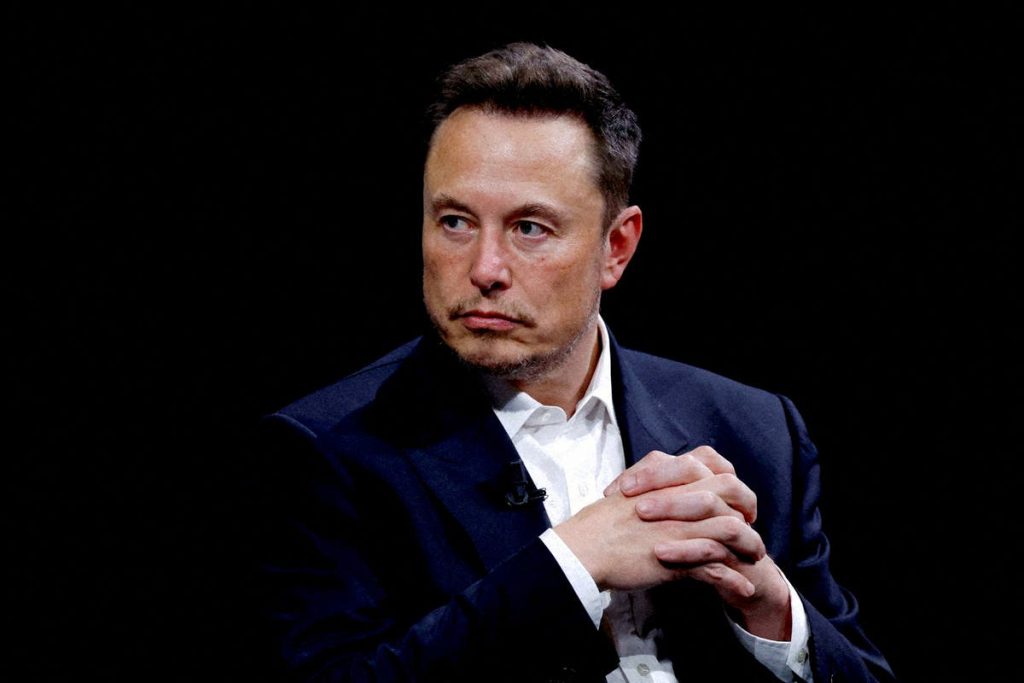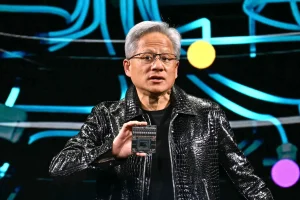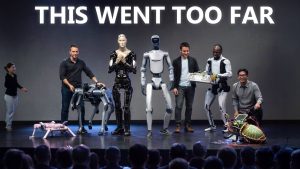Elon Musk Warns: Rapid AI Advancements Threaten Future Jobs

Elon Musk, speaking at VivaTech 2024 in Paris, shared a worrying prediction about the future of work. According to Musk, artificial intelligence (AI) advancements could soon make nearly all human jobs obsolete. The Tesla CEO bluntly stated, “Probably none of us will have a job,” as AI technology rapidly evolves, sparking concerns about the future of employment.
However, Musk also highlighted that jobs involving creativity and emotional intelligence might remain safe from automation. He suggested that while many traditional roles may disappear, there could still be opportunities in fields requiring creativity and emotional intelligence. Meanwhile, AI and robots would handle the production of goods and services, hinting at a potential shift in the job landscape.
AI’s Potential Impact on Employment
Elon Musk predicts that the rapid advancements in artificial intelligence could soon make almost all human jobs obsolete. Speaking at VivaTech 2024 in Paris, he shared the unsettling forecast: “Probably none of us will have a job,” the Tesla CEO said. This statement has sparked widespread concern about the future of work, as AI technology continues to advance at a rapid pace.
Musk believes that jobs requiring creativity and emotional intelligence might be safe from automation. He mentioned that jobs akin to hobbies could still exist, as AI and robots would handle the production of goods and services. This glimmer of hope suggests that while many traditional jobs may disappear, new opportunities could emerge in creative and emotionally intelligent fields.
The Role of Universal High Income
Beyond job displacement, Musk envisions a future where governments provide universal high income to support citizens. Unlike universal basic income (UBI), which provides a basic level of financial security, universal high income would offer a more substantial financial cushion. He argued that this model could serve as a social equalizer, ensuring that everyone has access to necessary goods and services without the pressure to work.
Musk’s advocacy for universal high income raises questions about societal restructuring and economic balance. Would people become more focused on personal growth and hobbies? Or would this lead to complacency and reliance on government support? These questions remain unanswered, but Musk’s vision presents a radical shift in how we view work and income distribution.
Balancing AI’s Power and Regulation
Despite being a co-founder of OpenAI, Musk has become a vocal critic of unregulated AI development. He believes that without proper oversight, superintelligent AI could pose existential risks to humanity. At VivaTech, he expressed concerns that such AI systems could outsmart human beings as early as next year, depending on the availability of necessary components.
Musk’s warnings highlight the need for stringent regulations on AI development. Limiting the power consumption and access to AI training chips could serve as short-term solutions, but long-term strategies must focus on ethical standards and international cooperation. These measures aim to prevent the development of AI systems that are too powerful to control, ensuring that technological progress benefits humanity as a whole.
The Existential Question: Human Purpose in an AI-Dominated World
Musk posed a thought-provoking question: “If the computer and robots can do everything better than you, does your life have meaning?” This existential query challenges the notion of human purpose in a future where AI outperforms humans in virtually every task.
In a surprising twist, Musk suggested that humans might find purpose in giving meaning to AI. This idea flips the conventional roles, proposing that instead of us developing AI, we could be the ones deriving significance from our relationship with these advanced systems. This perspective encourages a re-evaluation of what it means to be human in the age of artificial intelligence.
While this concept may seem far-fetched, it underscores the importance of ethical and philosophical discussions as AI continues to evolve. Society must grapple with these questions to ensure that the integration of AI enhances human life rather than diminishing it.
The Debate Over Social Media and AI’s Influence on Children
Musk also touched on the impact of AI on social media, particularly concerning children’s exposure. He warned about the dangers of AI-driven algorithms designed to maximize user engagement through dopamine-triggering content. “They’re being programmed by a dopamine-maximizing AI,” he cautioned, highlighting the potential for these systems to negatively influence young minds.
This warning calls for greater scrutiny of how AI algorithms shape our online environments. Parents, educators, and policymakers must consider how to protect children from the potentially harmful effects of addictive content. Musk’s remarks add to the growing debate about the role of AI in our daily lives and its broader societal implications.
The Need for ethical AI development
Ethical considerations in AI development are crucial, according to Musk. He emphasizes that as AI systems become more advanced, they must be designed with moral and ethical guidelines. These principles should ensure that AI benefits humanity without causing harm or widening social inequalities.
Musk’s call for ethical AI development echoes the sentiments of many experts in the field. This approach requires collaboration between governments, tech companies, and civil society to establish standards and regulations. The goal is to create AI systems that are transparent, fair, and accountable, fostering trust and ensuring positive outcomes for all.
Looking Ahead: A Future Shaped by AI
The rapid progression of AI technology presents both challenges and opportunities. As Musk’s predictions suggest, the workforce may undergo significant changes, requiring new approaches to economic and social structures. While the potential for job displacement is concerning, the possibility of a redefined work landscape offers a chance to rethink our relationship with labor.
In conclusion, Musk’s insights at VivaTech 2024 paint a complex picture of the future. The advent of AI could lead to unprecedented advancements, but it also demands careful consideration of ethical, economic, and social implications. As we move forward, the integration of AI must be guided by principles that prioritize human well-being and societal harmony.
The future landscape painted by Elon Musk is both challenging and full of potential. As AI technology progresses, the workforce will inevitably undergo significant transformations. While the prospect of job displacement is daunting, new opportunities in creative and emotionally intelligent fields could emerge.
The shift towards a possible universal high income underscores the need to rethink economic and social structures. Ethical considerations and stringent regulations in AI development are essential to ensure technological advancements benefit humanity.
Ultimately, the integration of AI into daily life must be managed thoughtfully to prioritize human well-being and societal harmony. Musk’s insights compel society to prepare for a future where AI plays a central role in shaping our lives.





